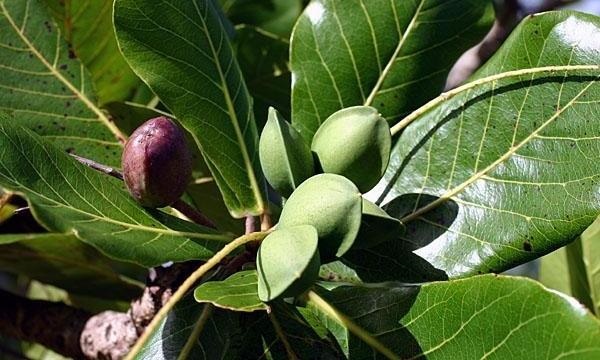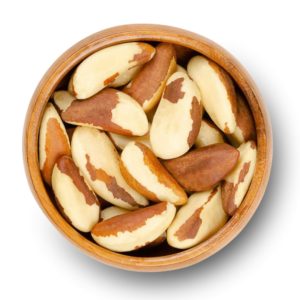Almond Farming in Nigeria
Almond farmers in Nigeria are gradually coming to the limelight. Since the recent rise in the campaign for healthy eating has started gaining the attention of many people in the country. There are quite a few people in Nigeria regarded as Almond farmers in Nigeria.
One needs to understand that there are different species or types of almond and only one of them is cultivated in Nigeria. This explains why there are only few almond farmers in Nigeria.
Almonds like Terminalia cattapa do well in Nigeria. It’s that thing we generally call ‘fruit’. Has a lot of fibre and the almond nut at its core. Pictures below: 

Terminalia catappa
Terminalia catappa is a large tropical tree in the leadwood tree family, Combretaceae, that grows mainly in the tropical regions of Asia, Africa, and Australia. It is popularly known as Indian-almond, sea-almond, tropical-almond and false kamani. Also, found in many parts of Southern Nigeria. It is often referred to as Ebeleboh in Benin.
The fruits are almond-shaped and green turning brown to purple when ripe. The fruit shell can be cracked for the edible seed to be consumed raw. The seed can be eaten alone or used for preparing fruit salad, smoothie, or for garnishing dishes. The Oil can also be extracted from the dried nuts, which can be used for cooking.
Buy Almonds in Nigeria
These are not in packaged for sale in the stores. You can get well-toasted American Almonds, packaged, and ready to eat from our store here. Click here
-
Product on sale
 ALMONDS (200g)Original price was: ₦11,000.00.₦10,000.00Current price is: ₦10,000.00.
ALMONDS (200g)Original price was: ₦11,000.00.₦10,000.00Current price is: ₦10,000.00. -
Product on sale
 ENGLISH WALNUTS (200g)Original price was: ₦13,000.00.₦12,000.00Current price is: ₦12,000.00.
ENGLISH WALNUTS (200g)Original price was: ₦13,000.00.₦12,000.00Current price is: ₦12,000.00. -
Product on sale
 BRAZIL NUTS (200g)Original price was: ₦22,000.00.₦21,000.00Current price is: ₦21,000.00.
BRAZIL NUTS (200g)Original price was: ₦22,000.00.₦21,000.00Current price is: ₦21,000.00.
Research on Almonds in Nigeria
Today’s Research teaches that one reason why most Almond won’t perform well in Nigeria could be traced to this fact. Almonds require a number of hours of chilling to enable the buds to break dormancy, between 300 to 600 hours at a temperature below 7.2 deg. C. Optimum temperatures for growth and nut production are 15-30 deg C, Nigeria barely records such, not even in Jos, the coolest part of the country.
